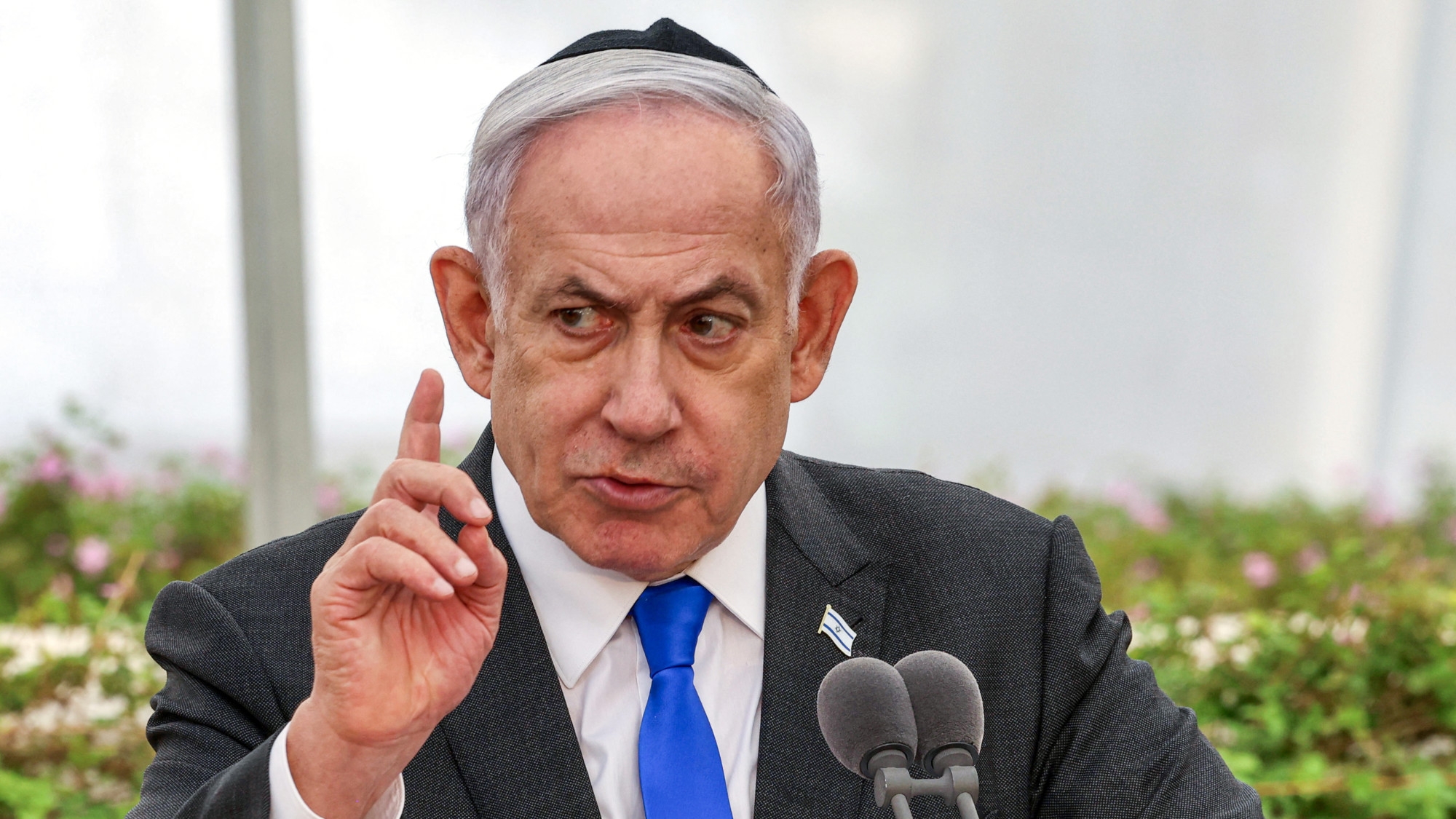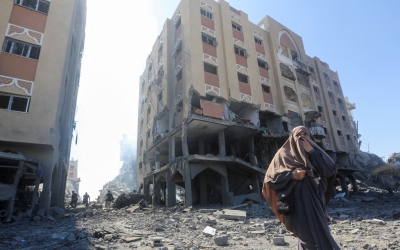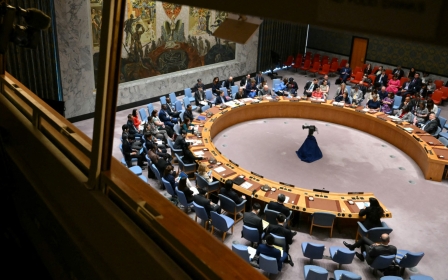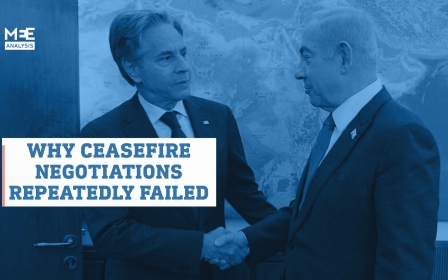War on Gaza: Netanyahu rejects permanent ceasefire plan

Israeli Prime Minister Benjamin Netanyahu has said he is open to a "partial deal" with Hamas that allows him to continue the war on Gaza after some of the captives are released.
A deal that permanently ends the war was not an option until Hamas is "eliminated," he told Channel 14 on Sunday.
Eliminating Hamas is a goal believed unachievable by the Israeli military and many experts.
Netanyahu's comments appeared to contradict several top US officials, who for weeks said Israel agreed to an outline presented by President Joe Biden in May, which leads to a permanent ceasefire.
"I'm not prepared to end the war and leave Hamas in place. I am prepared to do a partial deal, that’s no secret, that would return some of the people to us," the premier said in the TV interview.
New MEE newsletter: Jerusalem Dispatch
Sign up to get the latest insights and analysis on Israel-Palestine, alongside Turkey Unpacked and other MEE newsletters
"We are obligated to continue the fighting after a pause to complete our goal of destroying Hamas," he added. "I'm not prepared to give up on that."
The comments have caused outrage in Israel, as they appeared to suggest Netanyahu wasn't working to release all 120 captives who remain in Gaza.
The Hostages and Missing Families Forum, an umbrella group advocating for the release of captives, denounced Netanyahu.
"We strongly condemn the prime minister’s statement in which he walked back from the Israeli proposal," the group said in a statement. “This means he is abandoning 120 hostages and harms the moral duty of the state of Israel to its citizens.”
Sources told Haaretz and Walla news outlets the comments have caused tremendous damage to the ongoing ceasefire talks.
"Netanyahu made it clear today that he is not interested in the release of all the hostages - the demand he himself makes to Hamas - and is not willing to provide the compensation that Hamas demands," one source told Haaretz.
Meanwhile, Hamas said in a statement that Netanyahu’s comments prove Israel opposes the Biden proposal and the latest UN Security Council resolution calling for a ceasefire agreement.
Months of talks
Israel and Hamas have been engaged in indirect talks since January to reach a deal that ends the war on Gaza and swaps prisoners.
The two sides have been back and forth over a three-phased proposed outline for the agreement presented by US, Qatari and Egyptian mediators.
Most components of the deal have been finalised after months of negotiations, but two main issues remain unresolved regarding the terms of a permanent ceasefire and the withdrawal of Israeli forces from Gaza.
Last month, Biden said Israel agreed to a permanent ceasefire and a complete withdrawal as part of the outline in its latest offer sent to mediators on 27 May, which was revealed in full by MEE.
Israeli officials never explicitly said they agreed to end the war or fully withdraw from Gaza. Netanyahu repeatedly said he would not agree to a permanent ceasefire before his war “goals” are achieved.
Hamas officials welcomed the Biden announcement but later suggested the Israeli offer did not guarantee an end to the war.
The Palestinian group has said for months it would not agree to a deal that doesn’t involve an explicit end to the war and the full withdrawal of Israeli forces.
Hamas replied to the latest Israeli office on 11 June, the full text of which was revealed by MEE, but has yet to receive a response.
Last week, Qatar's foreign affairs minister, Mohammed bin Abdulrahman Al Thani, said some “progress” was made but acknowledged there are "still some gaps" and efforts were still ongoing to reach a deal.
Middle East Eye delivers independent and unrivalled coverage and analysis of the Middle East, North Africa and beyond. To learn more about republishing this content and the associated fees, please fill out this form. More about MEE can be found here.





